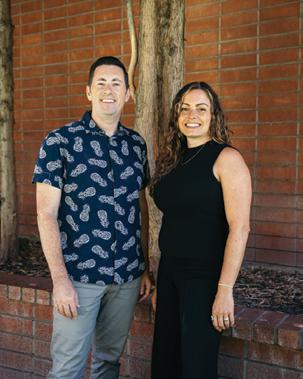

































Tell the world: CCDA’s got lots going on this spring! (GilroyHigh School; Photo courtesyJonathan Souza)! more Photos BEGIN on page 23.




































Tell the world: CCDA’s got lots going on this spring! (GilroyHigh School; Photo courtesyJonathan Souza)! more Photos BEGIN on page 23.

Official publication of the California Choral Directors Association, an Affiliate of the American Choral Directors Association
Eliza Rubenstein, editor cantate editor@gmail com
We welcome and encourage CCDA members to contribute articles, announcements, music and book reviews, job vacancy listings, photographs, and other items of interest to Cantate!
Please send queries and article ideas to cantate.editor@gmail.com. You are also welcome to submit completed articles, but please note that not all articles received will be published.
Deadlines for publication are as follows: August 15 (Fall issue); November 1 (Winter issue); March 1 (Spring issue). The editor reserves the right to edit all submissions.
Please visit our website (www.calcda.org) or e-mail us at cantate.ads@gmail.com for complete information on advertising in Cantate, including rates, deadlines, and graphics specifications. Advertisements are subject to editorial approval.
On the cover: Members of the Palm Springs Gay Men’s Chorus, which is celebrating its 25th anniversary. Photo courtesy Jerry Soria-Foust and Jeff Hocker.

WHEREAS, the human spirit is elevated to a broader understanding of itself through study and performance in the aesthetic arts, and WHEREAS, serious cutbacks in funding and support have steadily eroded state institutions and their programs throughout our country,
BE IT RESOLVED that all citizens of the United States actively voice their affirmative and collective support for necessary funding at the local, state, and national levels of education and government, to ensure the survival of arts programs for this and future generations.
California Choral Directors Association empowers choral musicians to create transformative experiences for California’s diverse communities.
CCDAisa501(c)3 non-profit,tax-exempt corporation and an affiliate of the American Choral Directors Association.
CCDa Summer ConferenCe at eCCo July 20-23, 2025 oakhurSt
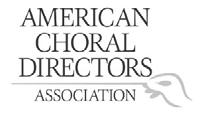
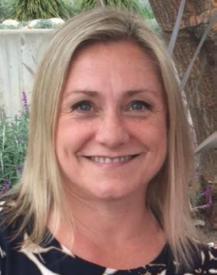
Arlie lAngAger studied oboe and arts administration before completing graduate work in voice performance and pedagogy, and received her master of music degree in conducting from the university of calgary. for the next decade, she taught courses in elementary classroom and secondary choral education and directed award-winning vocal jazz ensembles as well as the university chorus and chamber choir. she completed her doctoral degree in choral conducting at the university of texas in austin and joined the faculty of miracosta college in 2008. arlie and her best dog, nakiska, live in carlsbad
InMarch, I attended the ACDA National conference in Dallas. You probably saw lots of posts from attendees gushing about the many outstanding choral performances and inspiring sessions. The most rewarding part of any conference for me, however, is being in person with colleagues and friends. After many enthusiastic hugs and smiles, we all ask the million-dollar question: “So, how are you doing?”
Based on what I see on social media, I was starting to think that everyone else’s choirs across the nation were filled to capacity with outstanding singers, traveling the world on infinite budgets with their auditioned, perfectly balanced choirs, sight reading Bach using their appropriately trained and experienced voices.
But I heard many other stories. Choral conductors are optimists at heart, so everyone started with, “I’m good!” and “my choir singers are wonderful” before getting into the grimmer stories: “They’re cutting my funding for my programs.” “The ministry staff was cut [or they all resigned].” “They’re shrinking my program to one ensemble.” “I only have three baritones.”
Some of you can empathize. For many of us, these are crushing situations. We feel deflated and sometimes, in the moment, irreparably wounded. It can be hard to look forward. It can be hard to feel optimistic. It’s tempting to stop fighting the hurdles and let the walls shut us down.
But this is what we’ve trained for.
All of us—teachers, community choir conductors, music ministry directors—are in this field with the goal of guiding our singers to explore music that challenges the best of our ability. As directors, we study how to build voices, foster literacy, and grow programs from the ground up. We learn from our peers at conferences, workshops, and through long text threads with each other. We know how to do this.
Sometimes, it feels like it should be easier. It’s a difficult reality to face: Just because we’re passionate about great choral music doesn’t mean we deserve a
great choir. Just because we had perfectly balanced sections in our choir last year doesn’t mean we can always expect them. And seeing amazing concerts or festivals or social media posts can make us feel like we’re supposed to have choirs exactly like that, with singers who never miss rehearsals and are always prepared and smiling. When that’s not our reality, we wonder, why am I working so hard to share my passion with my singers?
One of the many rich discussions I had in Dallas took place as a group of us returned to our hotel after a concert. We reflected on the significant names who have profoundly impacted our profession in the past decades—names we saw the Choirs in America video. Most of us never met those great people, but as we walked, we started remembering the amazing conductors in our own lives who made such a profound impact on us. Suddenly, we found ourselves excitedly describing our elementary school classroom music teachers, or our first church choir directors, or a partcularly special middle or high school director.
These choral conductors changed our lives. And most of these great people did not have ideal ensembles that performed extensively or were widely known; that wasn’t ever their goal. It wasn’t their fame or achievements that inspired us; it was something about them as conductors, as teachers, as artists, as people.
As a choral community, it’s a privilege that we can come together to honor those conductors who made that impact on us. In July at our Summer Conference at ECCO, we will give our highest recognition, the Howard Swan Award, posthumously to Lynn Bielefelt.
Together we will remember and perhaps be inspired to create moments where we tell each other stories about the other great teachers in our lives, so we can return, refreshed, to our own choral programs (even the ones with too few baritones and no accompanist budget) to maybe even change some lives.

elizA rubenstein is the director of choral and vocal activities at orange coast college, and the artistic director of the orange county women’s chorus she holds degrees from oberlin college and uc irvine, and she is a former animal shelter supervisor and the co-author of a book about dog adoption eliza’s family includes her partner, julie fischer, and five dogs. she’s passionate about vegan thai food, photography, and the st louis cardinals and st louis blues, even when her teams are terrible, as they both have been recently
There were too many different religious influences in my early life— Presbyterian mother, Jewish father, Catholic school, Muslim best friend—for me to pick any one of them to attach myself to spiritually. Artistically, though, I found things to love in all of them: music, poetry, ritual, tradition. In or out of the faith world, few texts are as profound and as musical as the Psalms of the Old Testament (in their King James Version finery, not the cheap and monosyllabic “updated” editions), and it’s no shock that so many composers and songwriters have set them to melodies.
You probably know at least the opening of Psalm 137, a lament of the exiled recalling the homeland they loved:
By the waters of Babylon, there we sat down, yea, we wept, when we remembered Zion. We hanged our harps upon the willows in the midst thereof....
Palestrina set this text, of course, and so did Sweelinck and Liszt. There’s a famous Aeolian-mode canon based on the words of the first line; I remember singing it for sleepy preteens at the summer camp where I worked during college. Before that, as an eleventh grader, I watched my classmate Jon Hamm (yes, that one) make his stage debut singing “On the willows there, we hung up our lyres” toward the end of our high school production of Godspell.
But most musical settings of Psalm 137 bail out before they reach the fourth line:
How shall we sing the Lord’s song in a strange land?
Maybe that’s in part because the psalm takes a sharp turn a few lines later, from grief and sorrow to violence and vengeance. Maybe it’s just too meta; how do you write a song about the inability to sing a song, exactly? Or maybe it’s a conundrum too
murky for most composers to delve into: What does it mean to make music in a land where music seems to have lost its meaning?
I’ve thought a lot about that question these last few months. Don’t misunderstand; I still love music, still need it, still enjoy it. I still feel most myself when I’m rehearsing repertoire I love with my students or my community chorus. But I don’t know where that passion fits into the world that surrounds us today, into a nation that has chosen for itself a path of destructiveness, of exclusion, of isolationism—of all the things that represent the precise opposite of what I cherish about choral music.
Wrestling with thorny stuff is part of the job and the life of an artist, of course, and we all do it in our own ways and on our own timelines. But this feels different. This feels like—well, here’s the best image I can offer you: In an issue published the week after the September 11 attacks, The New Yorker included only one of the cartoons the magazine is famous for; you can google it easily enough if you like. It has no caption. The image, by the late George Booth, is of the usually happy, frowsy violin-playing woman who appeared often in Booth’s cartoons. But in this one, she’s seated on her stool, head bowed, hands in her lap. Her violin and bow are laid carefully on the floor at her side, alongside her eyeglasses and a sad cat. Her score sits unplayed on her music stand.
It still makes me cry. There is a desolation that even music can’t touch.
But there’s also a school year and a season ahead to plan; there are students ready to soak up what I place in front of them, and audiences expecting my ensemble to minister to them in December and March and May with just the right balance of aesthetics and activism. What do they need from us? And what do I have to offer them, when I’m half-inclined to lay down my instrument and sit in silence?
Iknow what I won’t do. I won’t use my voice, or ask the singers in my care to use theirs, to serenade fascists.
A state university, one many miles from California, sent its choir to sing at the presidential inauguration festivities in January. Their director posted photos from their journey—smiling students crouching on tarmacs and taking selfies in front of the Supreme Court—and announced that he would be deleting any “negative” comments, because all that mattered was that the trip was a life-changing experience for the students.
One way or another, the “life-changing” part is probably true. Some of the students stayed home, on principle. Some, I imagine, went with trepidation, out of unease with the policies of the incoming administration they were singing for, or concern over the repercussions if they chose not to participate, or both. Some probably just enjoyed the trip to Washington and a few days away from classes. Maybe time will color their memories and perceptions of the experience, for better or worse. Maybe some of them won’t join a choir again.
I’m not interested in attacking that university, that choir, that director; I don’t know what processes or pressures led to their decisions, and I trust they’re fine people and a fine ensemble. But I cannot imagine an experience so life-changing that I would ask my college chorus—my beautiful, lovable adopted family, full of LGBTQIA+ students and people of color and immigrants and children of immigrants—to sing in celebration of a regime that would deny their rights, deny their dignity, deny their existence. I cannot imagine asking my disabled students to sing in honor of leaders who would strip away the programs and accommodations that helped them get to college and beyond. I cannot imagine willingly entertaining the science deniers agitating to outlaw the vaccines that made us able to sing together again after the pandemic era. I cannot imagine polishing our best repertoire for the approval of autocrats who would turn the Kennedy Center into an “anti-woke” stage for nonthreatening state-approved arts. I cannot imagine lifting my arms to honor people who would defund my school, or any school. I cannot imagine performing for men who assault women.
beauty of diverse voices in harmony. There are too many good people, and good listeners, in this world for us to volunteer to entertain the bad ones. My ensembles and I will sing of things that matter, with singers who have fully and equitably consented to participate, for listeners who are receptive or at least reachable.
I suppose I can’t stop a fascist from buying a ticket, but I can make damn sure they’re never the guest of honor.
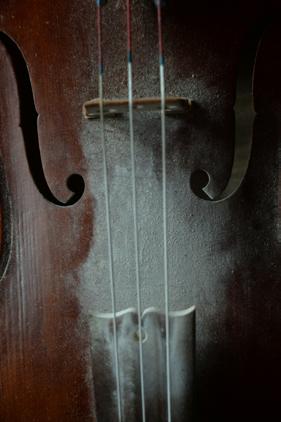
None of which solves the problem of programming for next year, of course. Poring over websites and repertoire lists to find the perfect holiday tune feels trivial at best, and Nero-grade oblivious at worst, when every hour brings new headlines about dismantled educational protections, imprisoned deportees innocent of any crime, threatened vengeance against universities and law firms and journalists and protesters. Nothing I put in my J.W. Pepper shopping cart will fix the chaos, but I have a sense of what belongs there: Music that makes space for the strain of our reality and the struggles that brought us here; music that invites us to think and feel more deeply about the world around us in all its vibrance and variety; music that allows us the pleasures of uncomplicated laughter and delight; music that astounds us with its beauty and connects us to the greater forces and grander plans that will outlast us all. And we’ll surround all of it with conversations and explorations that ensure, as much as we can ensure such things, that every singer feels as included, welcomed, and wanted as every other. That isn’t an easy responsibility, nor is it one we always get right. But there’s virtue in making the honest attempt, and honor in creating artistic spaces defined by democracy rather than authoritarianism.
You can delete that paragraph if you want, I suppose, on the grounds of “negativity.” I think of it instead as a commitment to hope, a vow against capitulation, a resolution to use my voice for good, a promise to raise our songs with and for those who believe, as we do, in the virtues of community, collaboration, and the
Last month, my community women’s chorus performed a concert that I programmed the week after the election, with no strict theme beyond “how we’re all feeling about the path we’re on.” We sang Poulenc’s Litanies à la Vierge Noire—the first work Poulenc wrote after the death of a friend suddenly sent the path of his life veering toward darkness, and one of the most harrowingly gorgeous depictions of grief and despair I know. We sang local favorite Dale Trumbore’s “Vital Dance,” about the anxiety of insomnia and the insomnia of anxiety, and Joan Szymko’s magnificent “Blessed Be,” with its elegantly unyielding Robin Morgan text about women’s bodily sovereignty, and a few songs about resolve and faith, and a Wailin’ Jennys tune, complete with banjo and fiddle, to remind us all to reconnect with birds and rivers during moments when everything in and around us feels splintered and senseless.
I didn’t know if the program would “work” for our audience; I only knew it all resonated with me and with our singers, and I hoped it would strike a chord or two with those who bought tickets. It did. The responses we received, in person and online, mostly boiled down to “I needed that.” If anyone felt insulted, we didn’t hear from them, and I imagine they won’t be back. “I think politics and art should be separate,” they might have said, but when the most fundamental tenets of a free and just society have turned political—when our existence and our environment and our freedom of expression are at stake—I don’t know what’s left to sing about if we can’t bear any overlap between art and politics. And I don’t know why we sing if not to speak better worlds into existence.
We’vespent decades insisting—to donors, to administrators, to kids and their parents—that music matters. It’s time now to make it matter. Let us have the courage (and really, it doesn’t take much) to choose music that ennobles, music that challenges, music that
aspires. Let us have the will to make time and space for challenging conversations about what and why we sing, even if that means programming something less technically impressive for the next festival. Let us have the fortitude to say no to serenading fascists.
What becomes of our music when the world burns? The captives in the psalm hung up their lyres. The woman in the New Yorker cartoon laid down her fiddle while Nero played his. I put mine down for a while, and then I picked it up again to accompany an interlude in that Wailin’ Jennys tune: “I know the silence as the world begins to wake; I’d like to be that silence as the morning breaks.”
When we’re asked to use our music to soften atrocities, there’s power in our silence. When we’re ready and able to use our music to strengthen our resolve, there’s renewed purpose and beauty in our songs.
May we shake off the torpor of discouragement and reject the temptation of obliviousness. May we find our voices—new voices, sadder perhaps, but unshaking and unshakable—and sing our songs in this strange land.
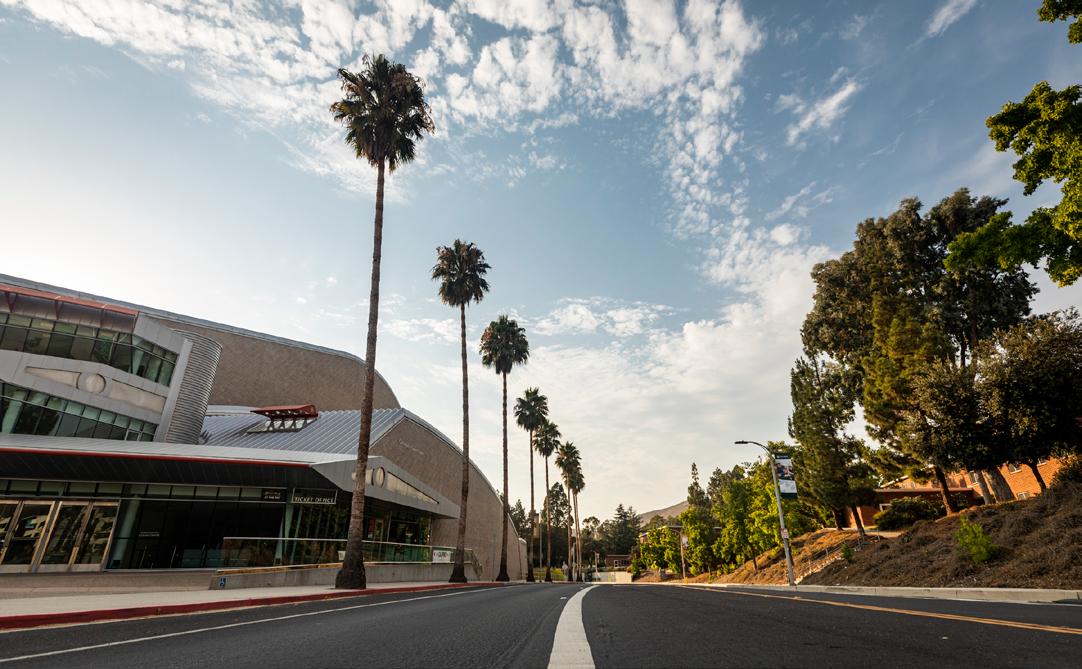

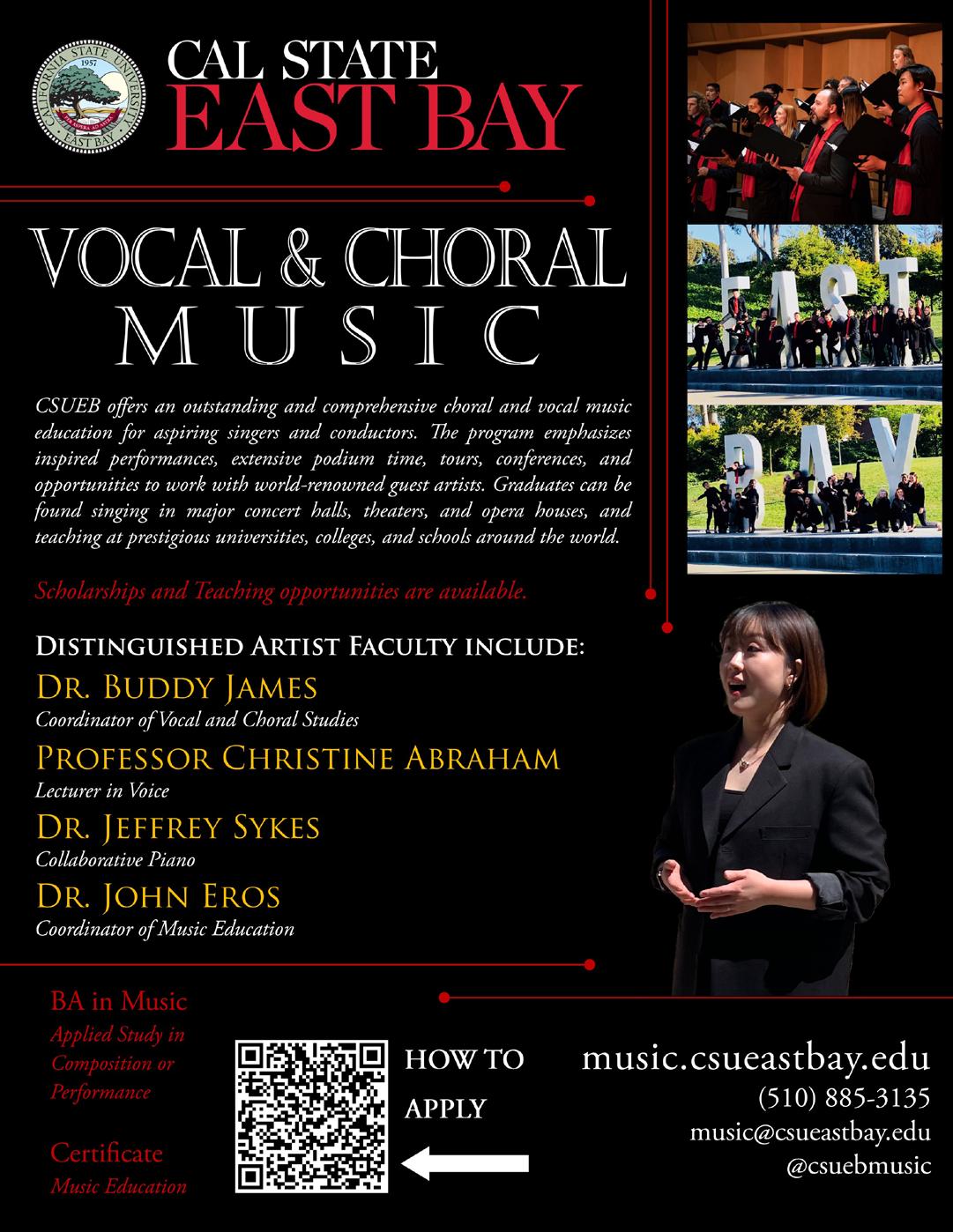
by Genevieve tep
Traveling with a chorus can be an unforgettable and enriching experience, but making sure that all singers feel safe and supported requires some thoughtful planning in 2025. If your chorus is anything like mine, it’s probably one of the places where your singers can truly be themselves, and that sense of security should extend to their travel experiences.
When I travel with my choruses, I treat my singers like my own kids, and making sure they feel welcome and safe is the most important thing I can do. The current political climate has many people feeling uneasy and scared. This isn’t okay. Politics aside, singers who don’t feel comfortable won’t continue to sing; they’ll leave and find somewhere else they can belong. Treating people right is the right thing to do, and it’s smart organizational planning. So, with that in mind, here are some things to consider when planning your next trip. Before announcing your trip, consider the diverse needs of your singers. Do you have gender expansive singers, singers on the autism spectrum, or undocumented singers? Travel can present unique challenges for these singers, and proactive planning is key. Identify singers who may face difficulties during ID checks or airport security pat-downs. Reach out to singers early to ensure that they have appropriate identification and know what to expect. Supportive chaperones or friends should accompany singers who may need extra reassurance during security procedures. I always ask my singers to let me know if they want someone specific to walk with them through security, and we always walk through airport security behind the singers so that if anyone is “caught up,” there’s a supportive person who can see that they may need help.
Open dialogue with singers is essential. Make sure to have open and honest conversations with your singers about locations, and have a way for your singers to let you know what their concerns are privately and anonymously. An undocumented singer is unlikely to raise their hand in rehearsal and say they are undocumented and that they feel uncomfortable
traveling to a specific location, but they may tell you in an anonymous Google survey.
Starting on May 7, all singers over the age of 18 will be required to have a Real ID-compliant form of identification to fly domestically. Will this requirement exclude some of your singers? Will they all have enough notice to make sure they have the proper ID? Real ID currently requires several forms of proof of identity and residency, including (but not limited to) passport, birth certificate, naturalization documents, and a social security number. I encourage you to visit www.dmv.ca.gov to view the entire list of possible required documents and share the link with your singers to make sure they are making informed decisions.
Traveling internationally as a gender expansive person may be a challenge for any of your singers—of any age—who do not already have passports. The Trump Administration no longer allows X markers for gender on passports, and requires passports to represent “biological sex at birth.” According to www.lambdalegal.com, there have not been any reported issues with people who currently have an X instead of M or F on their passports traveling internationally. And anyone who currently has a passport should be fine until it renews, although new restrictions and challenges seem to keep popping up. If you have singers who will need to get a passport to travel with your chorus, they may be faced with a very tough and deeply personal decision: Do they get a passport that does not represent who they are, or do they decline to get a passport and not travel with the chorus? These are difficult conversations to have, but these things must be considered.
Traveling internationally as an undocumented person is no less challenging. Many people are now afraid to return to their home countries to visit family because they are justifiably concerned about deportation, or not being allowed back into the United States. People with student and work visas who in the past would not have been fearful may now be concerned about international travel as well. Unfortunately, these things seem to be changing
weekly, and staying informed is a challenge. I recommend using a resource like the Immigrant Legal Resource Center (www.ilrc.org) to make sure you know your rights and stay informed. If you are traveling anywhere (even in the US) with possibly undocumented singers, you should know your rights as well, especially if you are traveling with minors. If you visit www.ilrc.org and click on “community resources,” you can download several helpful documents, including a one-page handout that covers what families should be doing, and what allies can do in case of an immigration raid. They are available in several different languages.
Your rooming list is crucial to ensuring singer comfort and safety. If you have a school chorus, know your district’s policies regarding gender-expansive singers before making assignments, and then assign roommates with sensitivity and common sense. Allow your more vulnerable singers to take the lead in their rooming assignments. Engage in conversations with your singers to understand their concerns and preferences. I use a Google form for singers to tell me who they want to room with and let me know if they have any worries or concerns, and then I spend a couple of weeks following up with singers to make a rooming list that everyone can live with. What I don’t do is a paper sign up in the choir room; that kind of social pressure is really difficult for any singer to navigate. Some of us remember being picked last for PE, and we don’t want our rooming lists to cause the same sort of shame and anxieties. A safe and comfortable rooming plan helps reduce anxiety and ensures a positive experience for everyone.
simply cannot assume that your gender expansive singers or your undocumented singers will feel safe in every location. Call hotels and restaurants directly, and engage with locals via social media. Their responses can help you gauge whether a particular location will be welcoming and safe for your group. Avoid locations that put your singers at risk; some locations now feel exclusionary to some singers. This spring my singers had concerns about accessing bathrooms at airports, hotels, restaurants, and concert venues. We checked websites and made phone calls to make sure they knew exactly what to expect. Ask very specific questions, like “Do you have gender neutral restrooms at your venue? Where are they located?”, and share what you learn with your gender expansive singers.
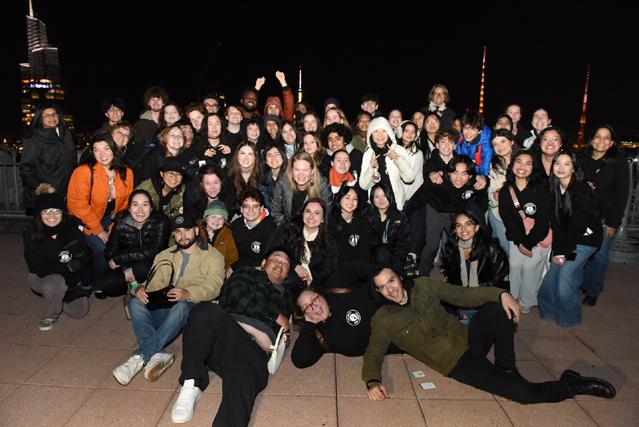
Genevieve and her Carlmont High School students during a recent trip to New York City
If you have chaperones on your trip, you know that they play an important role in creating a safe and organized travel experience. Provide clear, written policies outlining expectations for chaperone conduct, singer support, and overall trip management. Be specific in your expectations, and provide a list of common issues they may come across and how to deal with them. Make sure that they understand any school policies they must follow. Assign staff chaperones or experienced chaperones who “get it” to your more vulnerable singers. Have your chaperones complete an application, not just sign up to come along, and if anyone doesn’t meet your requirements, invite them to apply again the following year. Your singers—not the chaperones—are your priority. I take a large group of chorus alumni on our trips as head chaperones because they truly understand how we run things and what my expectations are. The chaperones that grew up in my chorus are the best advocates for the singers who need a little extra TLC.
Before booking a trip, take the time to ask questions about your destination, hotel, and local laws. You
I wish everyone a great start to the 2025-2026 season and a safe and exciting travel season.
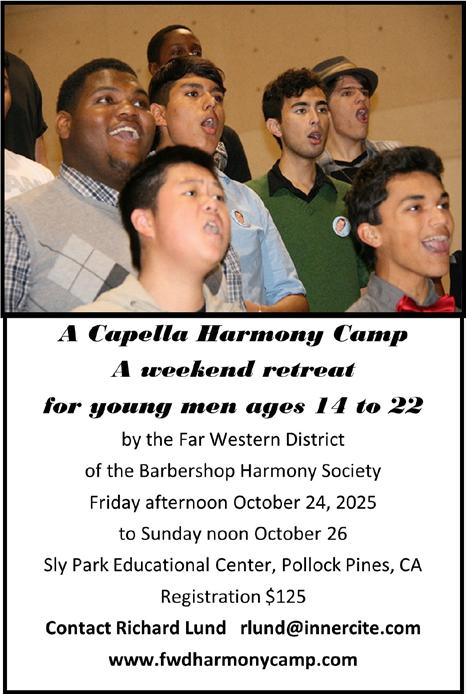
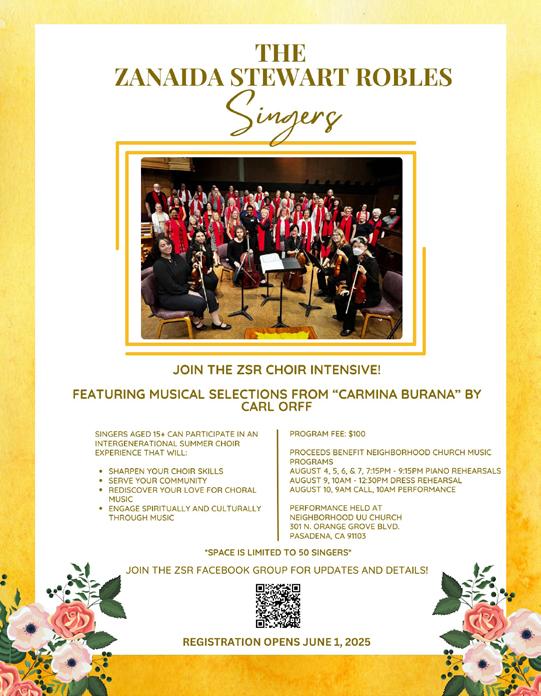
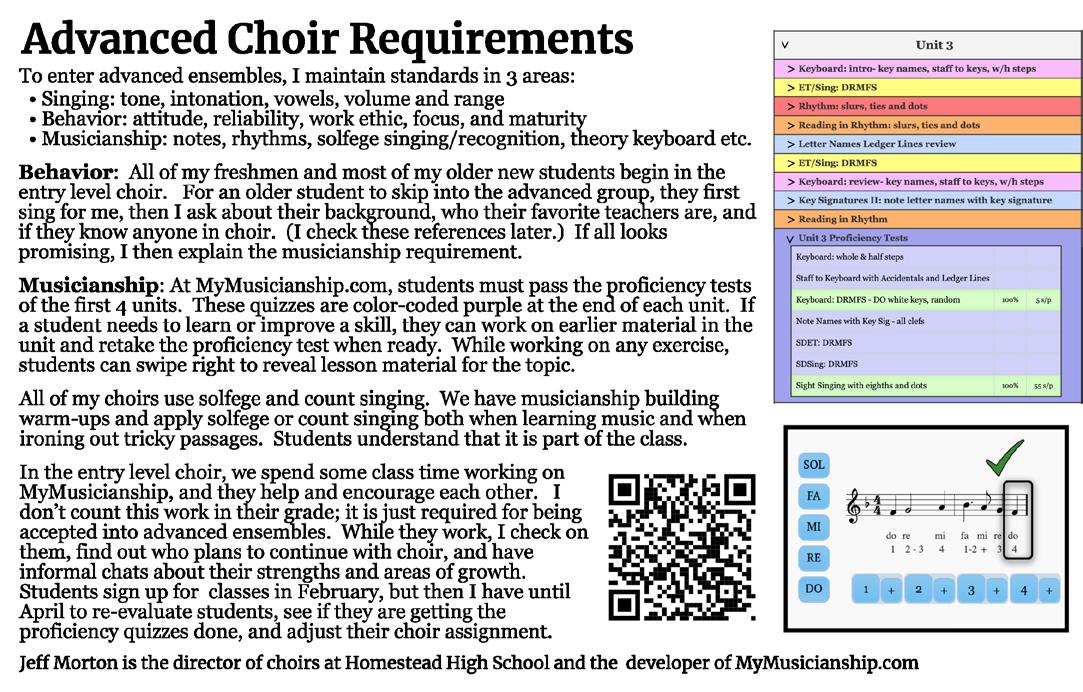



Applications for the inaugural $10,000 Joseph and Melinda Huszti Conducting Prize will open in fall 2025. Start preparing your application now!
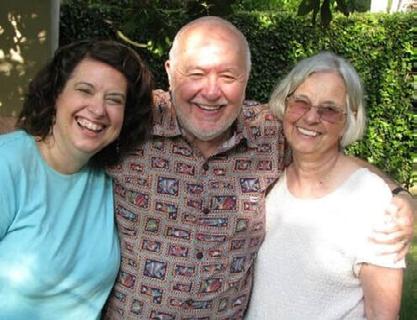
The prize is supporte the Huszti estate thro Melinda’s daughter,
Additional gifts to th contributions can be can read more abo Melinda Huszti on th

For application requirements, information about submission, and timeline, please scan the QR code, or visit www.calcda.org/huszticonducting-prize

The California Choral Directors Association (CCDA) exists to uplift and empower the choral conductors and singers of California. In a time of heightened social and political instability, we remain steadfast in ensuring that the core tenets of our mission—diversity, equity, inclusion, access, and belonging (DEIAB)—are not just ideals but guiding principles in every aspect of our work. We are committed to fostering choral music experiences that reflect and honor the diversity of our communities.
Guidance and Support: We will actively support all California choral musicians by providing resources and mentorship by our DEIAB team for repertoire selection and programming that promote diverse voices and inclusive storytelling. This includes a complimentary review of programming or repertoire lists, if requested.
Access and Representation: We will make resources available to schools, churches, and community organizations to diversify their choral programs, ensuring that every singer— regardless of background—feels seen, valued, and empowered to sing.
Safe and Brave Spaces: We pledge to create and uphold spaces where conductors and singers can engage in meaningful, courageous conversations that challenge barriers and drive equity forward.
Ongoing Accountability: We will continuously evaluate and refine our programs, processes, and publications through the lens of DEIAB, ensuring that our impact is both intentional and lasting.
We will not waver in our commitment to making choral spaces more equitable, more inclusive, and more transformative for all singers. This work is ongoing, and CCDA stands resolute in ensuring that every voice—on stage and behind the podium—has a place, a purpose, and a future that honors and respects all voices.
This statement was collaboratively crafted by the members of the CCDA Diversity, Equity, Inclusion, Access and Belonging (DEIAB) Team and approved by the Board of Directors of the California Choral Directors Association February 8, 2025
The California Choral Directors Association (CCDA) is excited to introduce a new series of mini-seminars via Zoom tailored for our K-12 membership. These informal meet-ups are designed to provide fresh ideas, encouragement, and reassurance to educators navigating the joys and challenges of teaching music.
Each seminar will focus on a practical topic chosen by our members, such as understanding Prop 28, program retention, collaborating with counselors, selecting repertoire, warm-ups, etc. The format is casual yet purposeful. Our goal is to foster a supportive space where K-12 educators can share strategies, ask questions, and leave feeling recharged.
This initiative stems from recent surveys sent to our K-12 membership (scan QR code below to share your insight), reflecting your needs and priorities. A dedicated committee is already hard at work organizing the series, ensuring each session delivers value in just a short time. Stay tuned for the schedule and join us to connect, learn, and grow together.

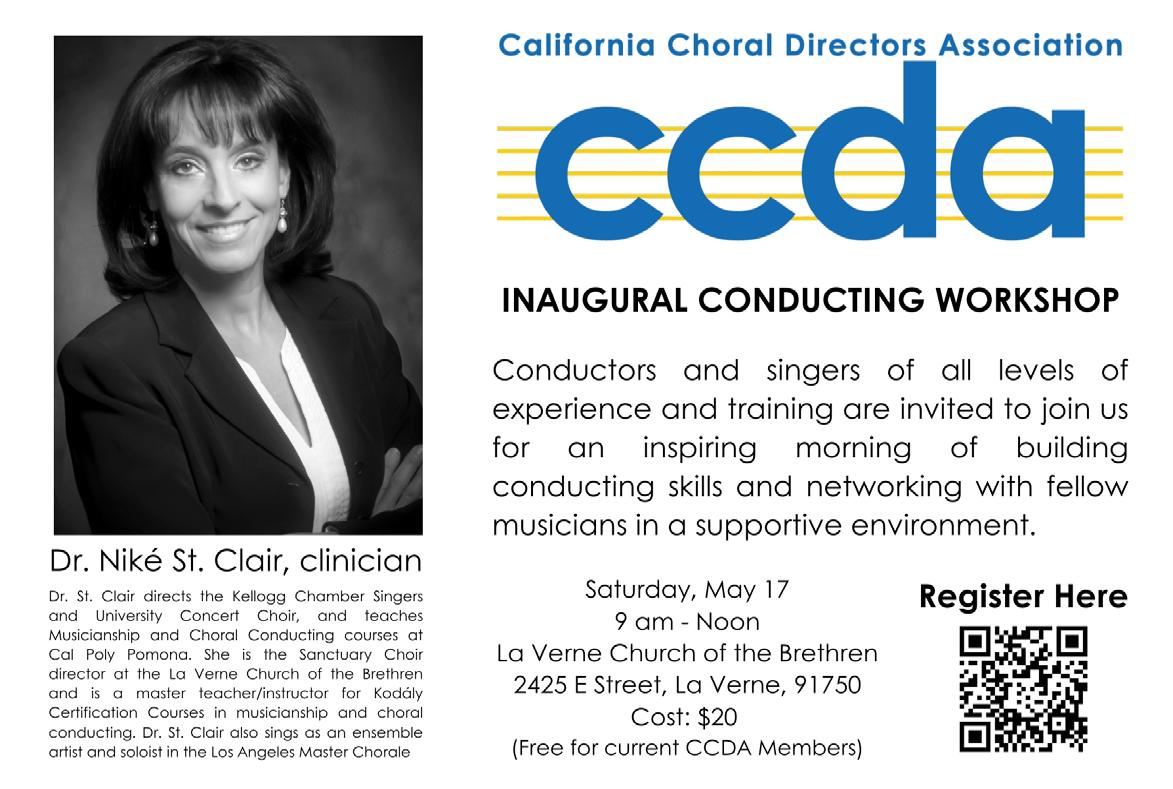
We hope that many of you were able to attend the 2025 All-State Honor Choir concerts at the beautiful and historic Memorial Auditorium in Sacramento. The students came well prepared and their incredible achievements are a testament to the expertise and dedication of you, their directors!
We also have to thank everyone who made this year’s All-State Choirs possible: the regional audition hosts and judges, regional event coordinators, chaperones, ensemble managers, guest conductors, and brilliant collaborative pianists. An especially huge thanks to Harlee Balajadia for your meticulous work as chaperone/hotel coordinator.
The 2026 All-State Honor Choirs will take place at
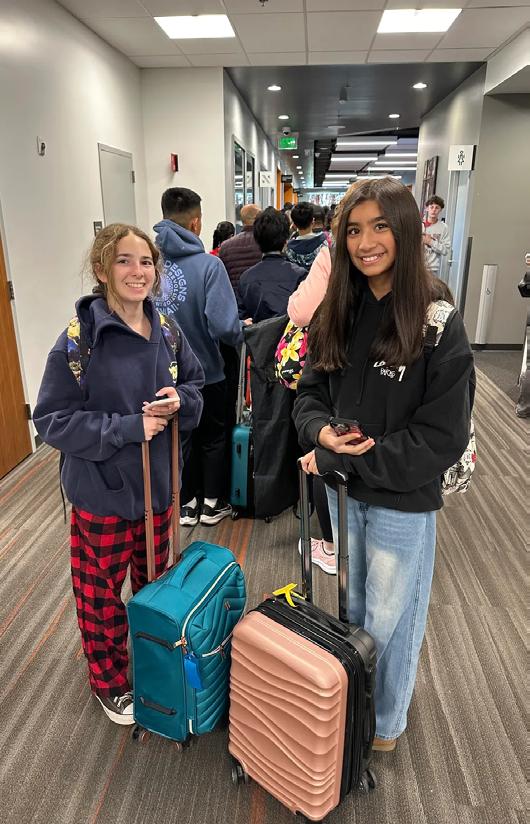
CASMEC in Sacramento from January 15-17, 2026. Check the CCDA website for the announcement of the conductors later this month!
Also save the new date for the 2025 Coastal and Central Region High School Honor Choirs: November 6-8, 2025.
The 2025-2026 CCDA Honor Choir calendar is already posted on the All-State website (calcda.org/ all-state) for your planning!
Keep an eye on your e-mail and the CCDA Honor Choir website (calcda.org/honor-choir) for more details, including audition information and instructions, by the end of this school year.
“This was my first year at All-State and I will never forget all the memories I made. All the people there were so nice and I was so excited to sing with people who had the same passion as me.”
“Many moments over these three days have shown me what a comunity of singers can become.”
“Fear of judgment and deficiency almost held me back from achieving my goal, but I auditioned and made it, which was one of the best decisions of my life.”
“The teachers at CASMEC knew the blessing and the struggle of taking care of students, and they handled every single aspect with such grace.”
“I will treasure all of our pieces as they make their way to a special place in my heart.”
“I wish it would have lasted longer.”
“Everything is all connected. No matter what happens, there will always be people to lift you up and empower you. There will always be someone for you.”
by JENNiFER HEDER
The 2025 California All-State Music Education Conference (CASMEC), held January 16-18 in Sacramento, was a tremendous success! Music educators, students, and performers from across the state gathered for inspiring interest sessions, outstanding honor choirs, powerful guest ensemble performances, dynamic Choral Leadership Academy sessions, and a memorable awards night.
A heartfelt congratulations goes to this year’s award recipients: Gail Bowers, named 2025 Choral Conductor of the Year; Sammy Salvador, honored as 2025 Early Career Choir Director of the Year; and Scott Hedgecock, who received CASMEC’s 2025 Medal of Honor for his years of distinguished service. Your passion and dedication continue to uplift and inspire California’s choral community.
One of the most anticipated highlights of the conference

was the All-State Concerts, where talented young vocalists from every corner of the state took the stage. These free, public performances gave the community a chance to experience the remarkable musicianship and artistry of California’s next generation of singers.
As we look ahead to CASMEC 2026, mark your calendars! The conference will return to Sacramento from January 14-18, 2026. We’re thrilled to announce that Dr. Derrick Fox will headline our Choral Leadership Academy, we welcome undergraduates as well as 11th and 12th grade students to participate.
Interested in being a part of the 2026 experience? Guest Performing Ensemble applications are open now through May 5th, and Interest Session applications are open now through July 11th.
We encourage all to apply—don’t miss your chance to be a part of something extraordinary!
Students rehearse during the Choral Leadership Academy, one of the highlights of CASMEC 2025
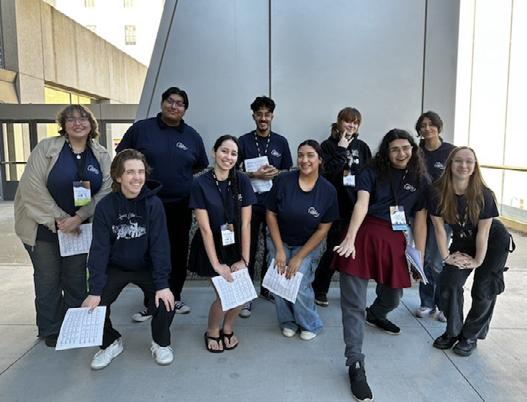

Kieun steve Kim serves as the Director of Worship anD Music at trinity uniteD presbyterian church ( tustin), folloWing his role as Director of choral activities at siMpson university he has prepareD choirs for perforM ances With M ajor orchestras, incluDing the baltiMore syMphony anD philaDelphia orchestra. his choral Works, spanning genres, incluDing classical, jazz, gospel, anD k-pop, have been perforMeD by enseMbles incluDing chanticleer anD WestMinster choir. his Musical analyses are publisheD through gia publications he holDs Degrees froM the university of MarylanD, WestMinster choir college, anD the san francisco conservatory.
Asworship musicians, one of the most impactful aspects of our role is curating thoughtful repertoire for the ensembles we are entrusted with each season. The music we choose shapes the emotional and spiritual journey of our community, the growth of our singers, and the overall success of a season. Thoughtful repertoire selection is not merely a matter of preference—it’s a pastoral and artistic decision that carries deep significance.
Key Considerations in Repertoire Selection
When choosing music for the upcoming season, I consider several factors to ensure each piece serves a greater purpose. These include:
1. Genre diversity: Balancing classical works, contemporary anthems, spirituals and gospel pieces, traditional and modern hymns allow for a broader musical experience that speaks to different generations and preferences.
2. Experience and difficulty level: Each ensemble is unique in its abilities. Some groups thrive on complex polyphony, while others flourish with accessible, heartfelt melodies, and within your group, you’ll likely encounter a wide range of experiences. Choosing music that meets your singers where they are fosters confidence and engagement. Stretching singers too far can lead to frustration, while under-challenging them can cause disengagement.
3. Balancing old and new: Honoring time-tested classics while introducing fresh compositions helps create an experience that feels both grounded and relevant.
4. Composer selection: Featuring diverse composers ensures your choir engages with a wide spectrum of musical ideas, styles, and cultural influences.
5. Styles and tempo: Varying musical styles and tempos throughout a season brings balance and energy to the worship services and rehearsals. Alternating between reflective, meditative pieces and lively, upbeat selections can keep singers engaged while enriching the emotional landscape of your services.
6. Knowing your congregation: Selecting music that resonates with your congregation’s unique identity, culture, and worship style is key to fostering meaningful engagement. Understanding their spiritual journey, traditions, and preferences allows music to become a powerful bridge that inspires reflection, connection, and a deeper sense of community.
7. Your choir’s preferences: While artistic leadership is crucial, acknowledging the interests of your choir can improve morale and foster ownership.
8. Your accompanist’s experiences: Your collaborative pianist’s expertise and insights can greatly enhance your collaboration with the ensemble, offering valuable support throughout your musical journey together including the decision-making in selecting repertoire.
9. Personal connection: It is also important to select music that we already love or have the potential to grow fond of. When we choose pieces that resonate with us, our passion naturally inspires the ensemble, helping the choir connect with the music on a deeper, more meaningful level.
While my selections are influenced by my role as a music director at a Presbyterian church, I know that the music we share in worship reflects a rich and diverse spectrum of faith within our CCDA community. Our diverse backgrounds and the unique congregations we serve mean that we all bring different perspectives and experiences to the table.
What are the pieces that have made a lasting impact in your ministry this season? Whether they’re for your adult, youth, or children’s ensembles, I’d love to hear what’s been meaningful in your context. I’d be thrilled to share these recommendations with our Music in Worship community, so we can continue to inspire and uplift one another in our shared calling. Please share them with me at skim@ tupcsa org
Together, let’s keep seeking music that elevates worship, nurtures our singers, and draws hearts closer together.


We are thankful for your support!

Through your gifts, CCDA has been able to make a significant impact this spring.
Replaced technical equipment for a high school in Pacific Palisades
Replaced home studio equipment and resources for a Pasadena-based choral composer
Helped fund a new rehearsal venue for a Pasadena-based community choir
Dr. Charles C. Hirt Scholarship for Professional Development: Han-ah Park
CCDA Creativity Grant: Brandon Ellsworth


CCDA Choral Equity Scholarship: Darlene Machacon CO Scholarship: Dillon Nelson os-Barba onference at ECCO Scholarship: Sibel Demirmen, Emily Greco, Harris
ecial thanks to our corporate partner their support of the 2025 Creativity Grant

This list includes donations made between FEBRUARY 15, 2024, and MARCH 15, 2025. Donations made after that time will be acknowledged in the next Cantate and may be found on our website. Thank you for your support!
President’s Circle
Diamond ($1000 and higher)
Resounding Achord
Dr. Arlie Langager*
Ludus
Susie Martone
David Masone and William Hall
Legacy Giving, in honor of Dr. Gene Peterson, Dr. Jonathan Talberg, and Dr. Joseph Modica
Ken Rawdon
Lori Marie Rios and Bryan D. Walker*, in honor of Shirley Nute, Don Brinegar, and Bruce Mayhall-Rastrelli
Trevor Strohman
President’s Circle
Platinum ($500-$999)
ACFEA Tour Consultants
Dr. Daniel Afonso Jr*, in honor of Bill Hatcher
Mike and Julie Dana*, in celebration of ECCO conference
Lou and Mary De La Rosa*, in memory of Jim Heiner
Angelina Fitzhugh
Keith Hancock
Burt and Polly Vasché* National Concerts
President’s Circle
Gold ($300-$499)
Florence Agcawili
Duane and Linda Lovaas*
Oscar Luna II
June Ou
Susanna Peeples*, in memory of Germán Aguilar
Cliff and Cindy Samson, in celebration of Joe and Melinda Huszti
Magen Solomon
Dr. Jonathan Talberg*, in honor of Dr. William Hall
President’s Circle Silver ($100-$299)
Lorna and Haroutune Bedelian
Patrick Burzlaff
Lauren Diez
Dr. Cari Earnhart
Karen Fulmer
Jennifer Gaderlund
Brian Gorelick
Maggie Goodrich Gutierrez
Marty Haynes
Kent Jue and Steven Kirk
Chara Njoo Ko
MaryClare Martin*, in honor of Lena and Art Babin, and Signe Boyer
Richard Martone
Hugh McDevitt
Marc McGhee
Kristina and Ryan Nakagawa*, in memory of Lois Carah and Joe Huszti
Christina O’Guinn
Lynn and Steve Overcashier
Jeff Peckham
Molly Peters, in honor of Lori Marie Rios
Dr. Zanaida Robles
Genevieve Tep*
Randeep Toor
Sponsor ($50-$99)
Felicia Bessent
Ruth Charloff
Allison Crose
Brett Epperson
Jason Gallardo
Mary Hamilton
Dr. Scot Hanna-Weir
James Jirak
Abert Mabeza
Suzanne Martone
Lisa McCormick
Willi Mickelson
Sheela Raju
Laryssa Sadoway
Susan Swerdlow
Dr. Ángel M. Vázquez-Ramos and Jody R. Vázquez*
Supporter (up to $50)
Stephanie Alvarez
Loreen Dunbar
Shelley Durbin, in memory of Charles Irvin
Joy Gage
Beth Holtan
Dr. Ron Kean*, in memory of Dr. Lynn Bielefelt
Linda Manuilow
Issac Pereschica
David García Saldaña
Noah Sutherland
* Founder’s Circle
Teaching assistantships, scholarships, and need-based financial aid available. Email uscmusic@usc.edu for more information.
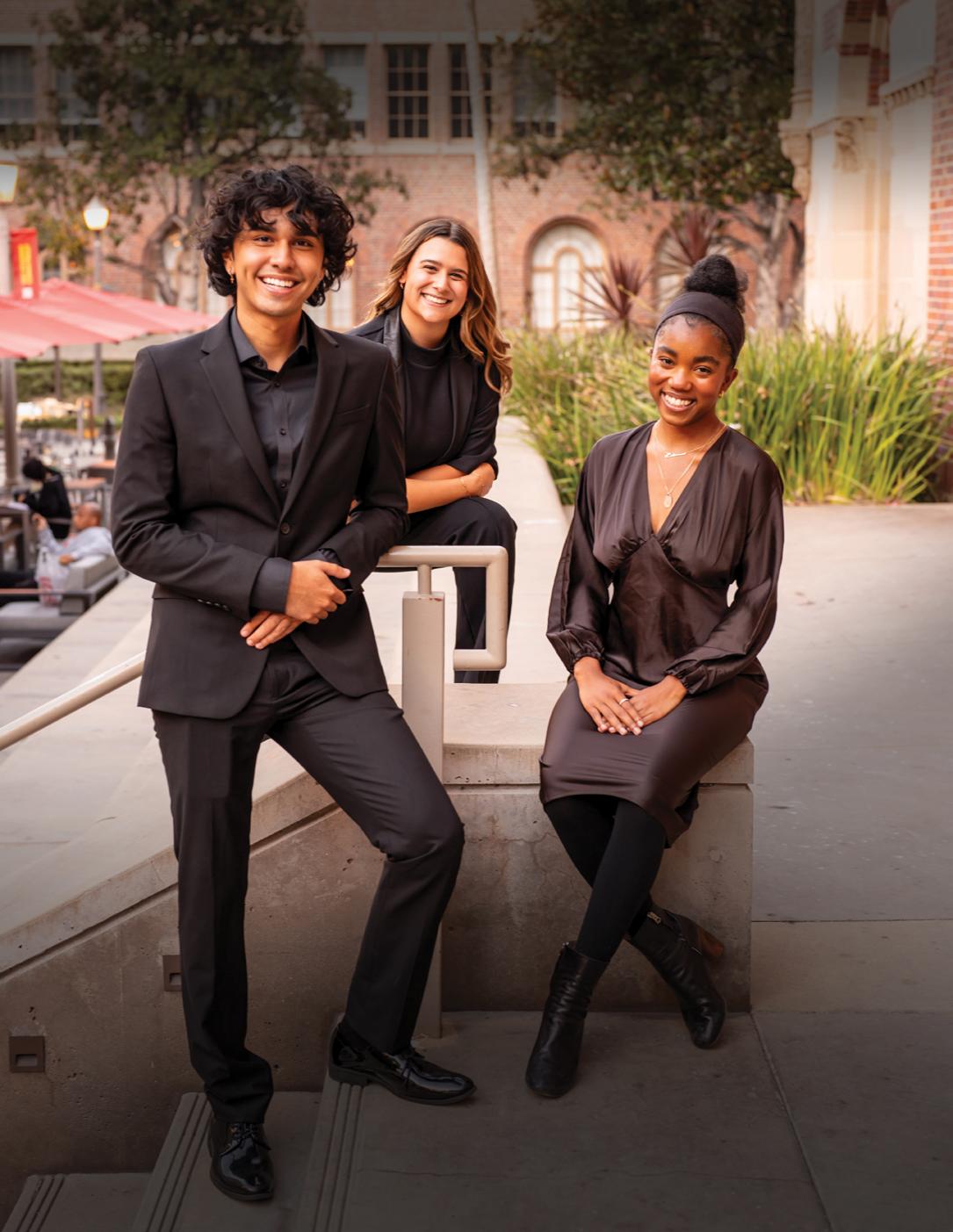
DEGREES OFFERED
Choral Music BM, MM, DMA Sacred Music MM, DMA
APPLICATION DEADLINE DECEMBER 1, 2024 music.usc.edu/choral-sacred-music
@USCTHORNTON
Right: All-State choir members from Albany High School and Middle School (Kate Huizinga, director) pause for a rehearsal break; below: some of the powerful women of ACDA surround 2025 Robert Shaw Award winner Dr. Charlene Archibeque. Turn the page for more photos, and send your best shots to cantate.editor@gmail.com if you’d like them considered for inclusion in a future issue!

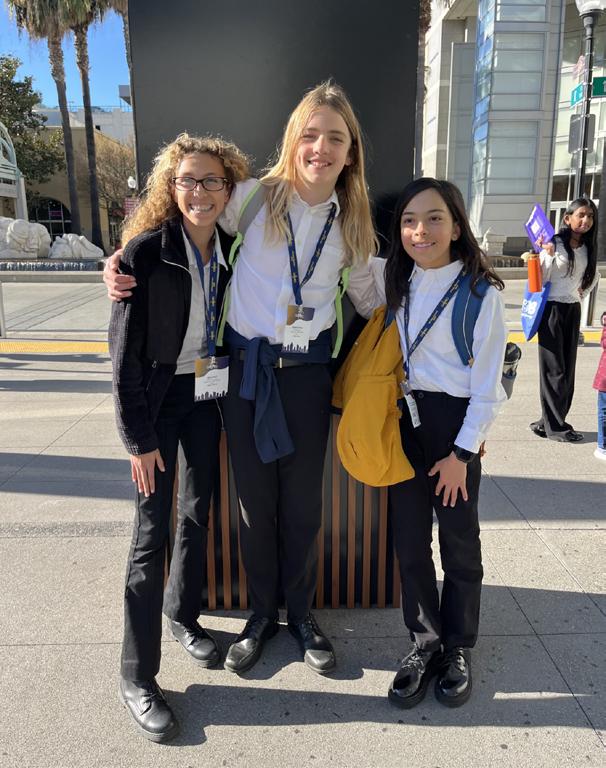
Right: apparently “CLA” can stand for “Chicken Leadership Academy” as well as “Choral Leadership Academy” (photo courtesy Cari Earnhart); below: singers feel the spirit at Cal State Long Beach’s Gospel Week celebration, which brought together CSULB choirs, faculty, staff, and community members (photo by Sean DuFrene, courtesy Jonathan Talberg).
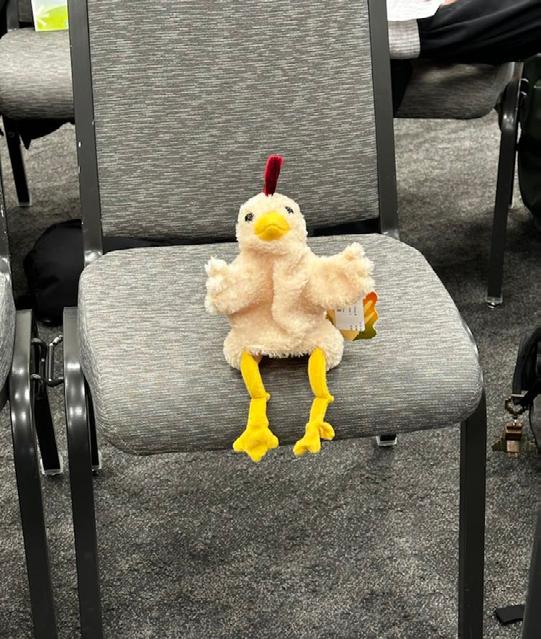
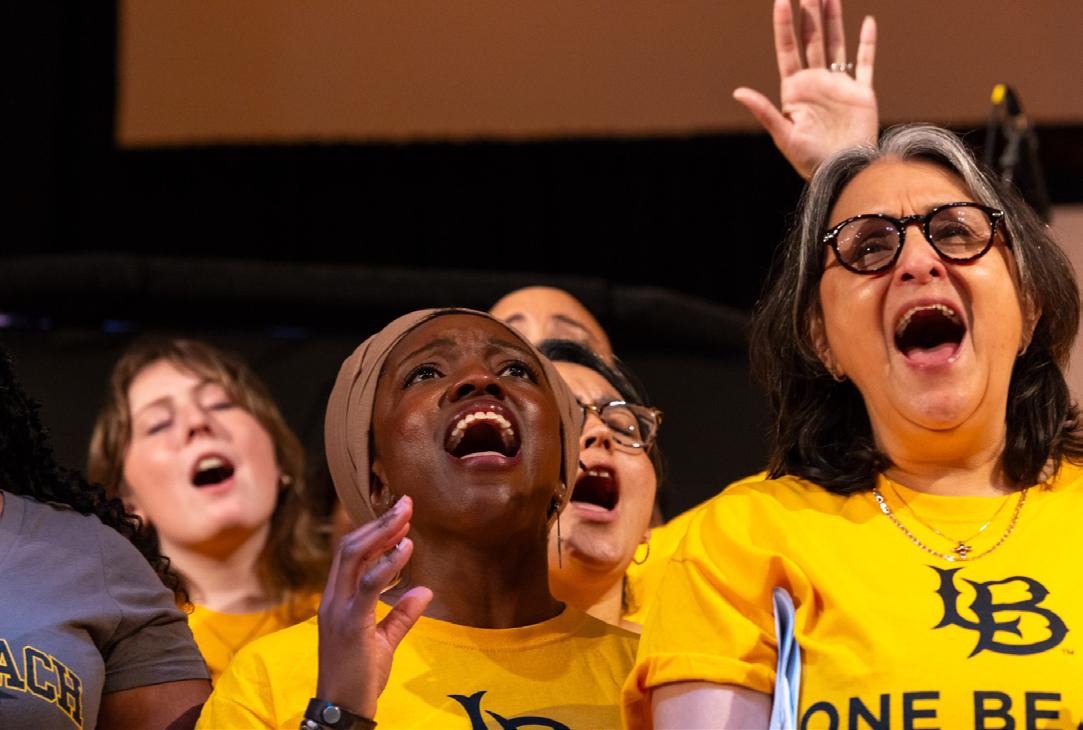
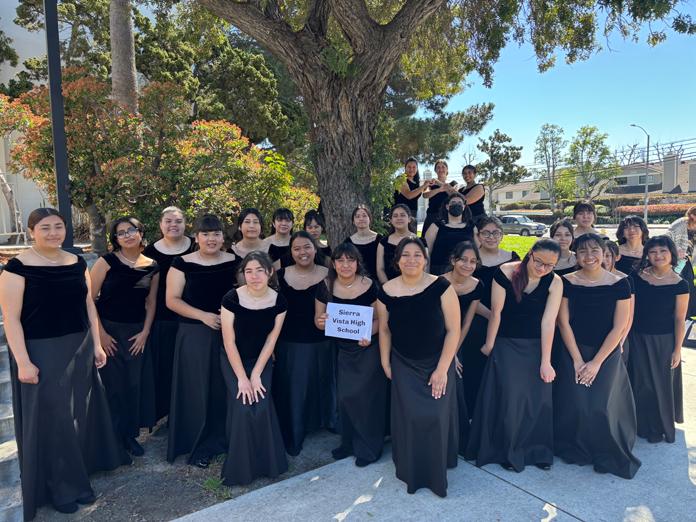
Left: the Sierra Vista High School Vocal Ensemble (Suzanne Brookey, director) identifies themselves while on tour to the Central Coast; below: choir members from Bonita High School (Ryan Yoder, director) find some local color literally during their spring tour to New York City.
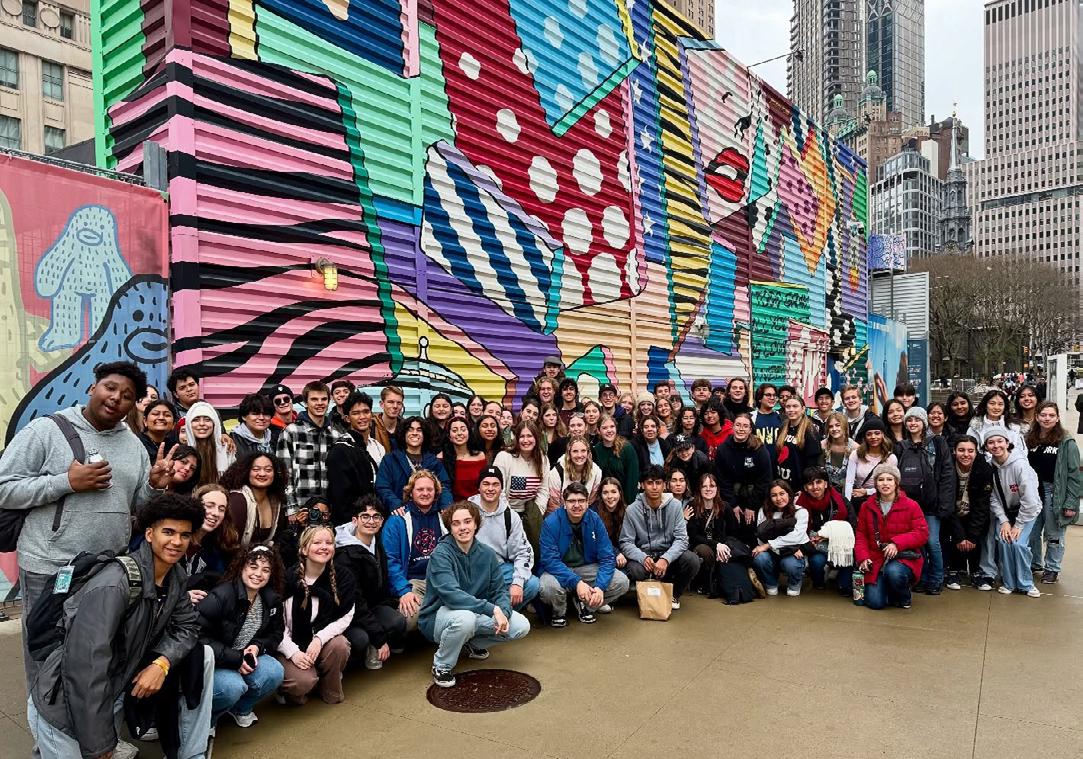
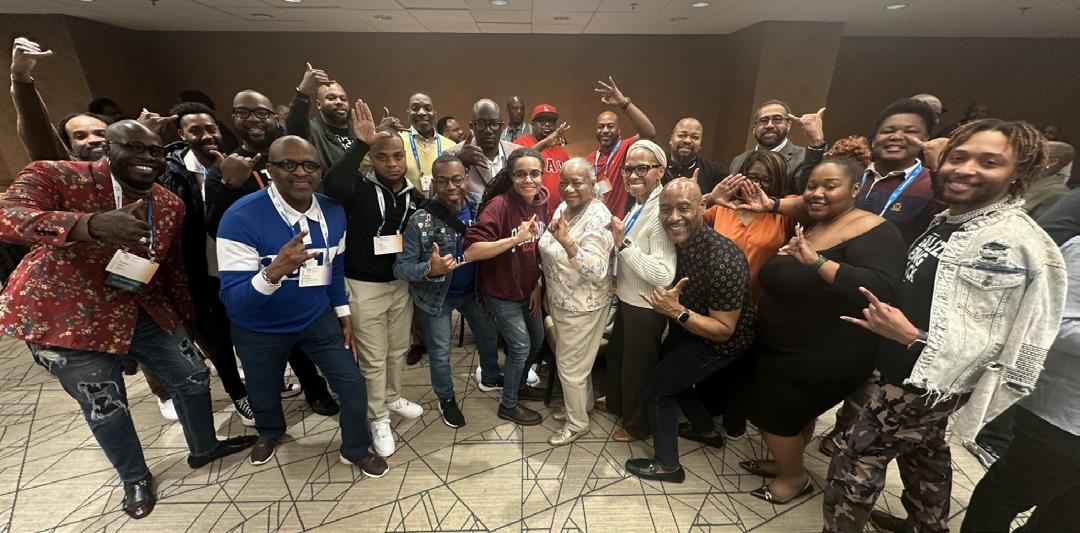
Above: members of the Divine 9—historically Black fraternities and sororities gather at the ACDA National Conference in Dallas in March (photo courtesy Kellori Dower); below: Ragazzi (Kent Jue, director) performs at the ACDA National Conference (photo courtesy Cari Earnhart).
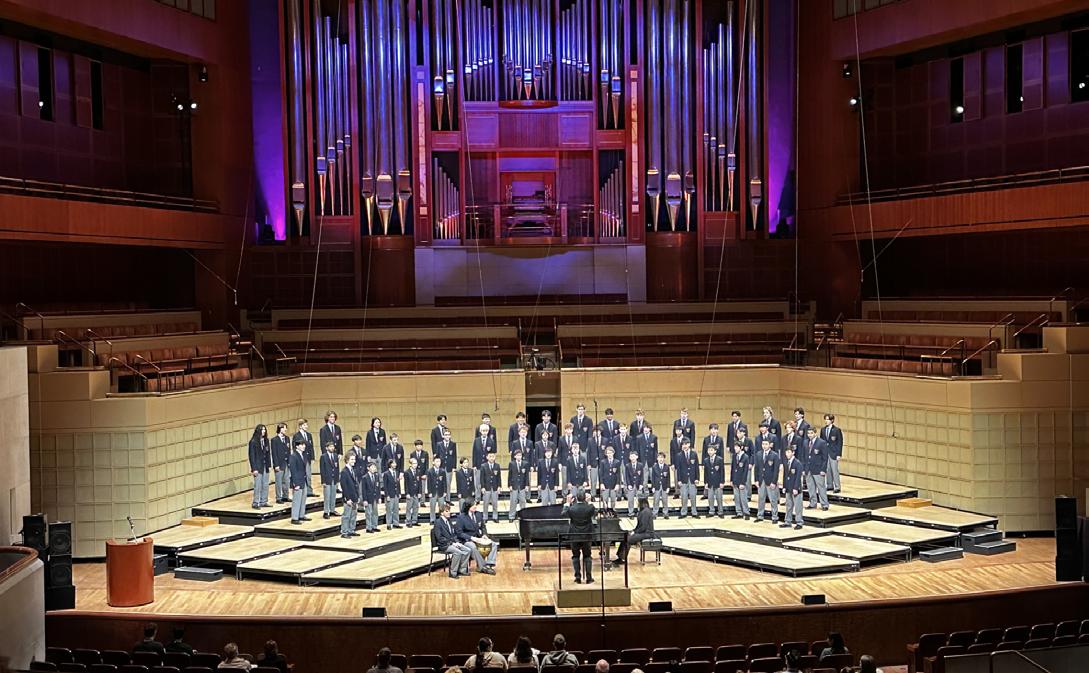
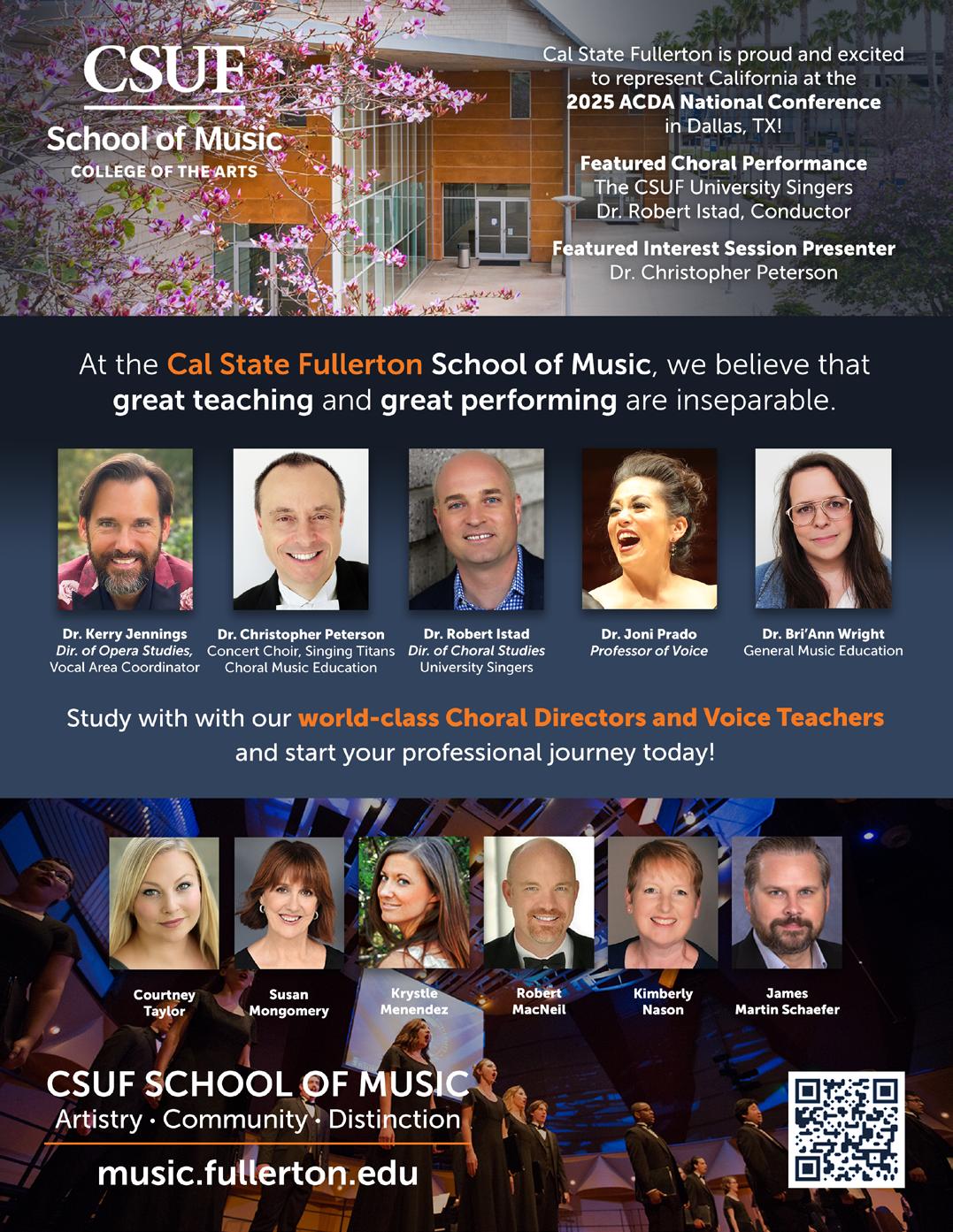
MARCH 4-7, 2026:
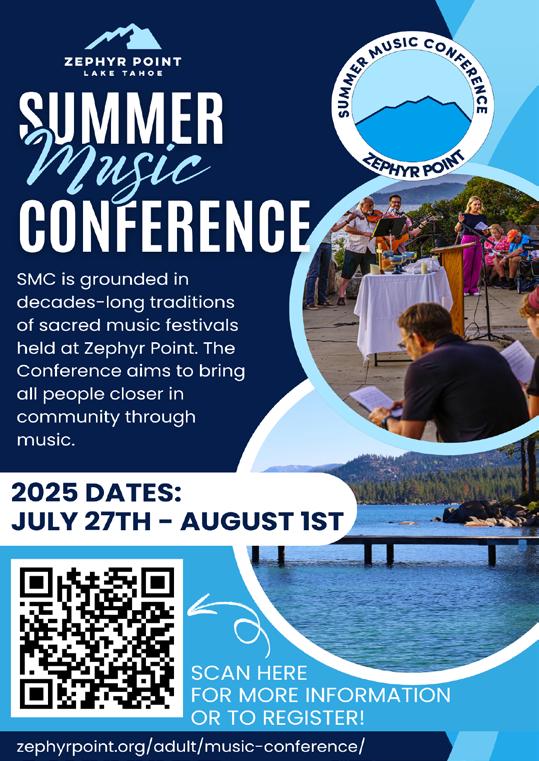
Start planning now for ACDA Western’s 2026 conference in San Jose! March 4-7, 2026
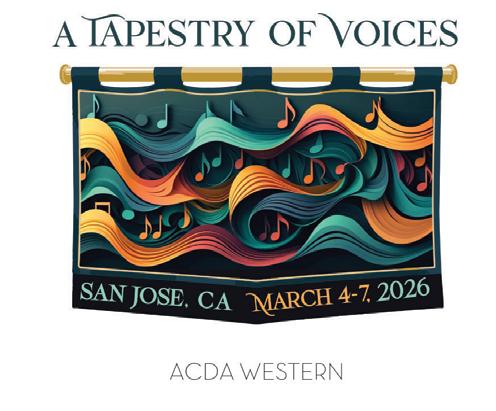
Under the direction of guest conductor Dr. Nicolás Alberto Dosman, select choirs will rehearse and perform alongside singers from UC Davis at Carnegie Hall in New York City Rosephanye Powell’s The Cry of Jeremiah, narrated by the composer herself, accompanied by professional orchestra and soloists, and brought to life by artistic projection. The UC Davis choirs also celebrated Albert McNeil’s 105th birthday with a concert at The Mondavi Center on Saturday, March 8th. Dr. Jan Taylor conducted a mass choir made up of UCD students, faculty, community members, and alumni in pieces that McNeil championed during his illustrious career. The UCD Chamber singers and a quartet from the Albert J. McNeil Singers were also featured.
In March, Jennifer McGill of Hanford High School was featured as the KSEE 24 (Fresno) Educator of the Week. The local news did a story on her excellent program at Hanford High School, and the choral department received a small donation.
Adrian Rangel-Sanchez received the 2025 Orange County Secondary Vocal Music Educator Award at the OCMAA Awards at a ceremony held at Segerstrom Center for the Arts in February. As vocal music teacher at Portola High, he received the award for his innovative teaching methods, which combine technical skill-building with a passion for music that inspires his students.
Jouyssance Early Music Ensemble (Nicole Baker, Artistic Director) presented two sold out performances of “Spirit Child” in early January, interweaving music from Nueva España with a fresh take on a Mexican pastorela, a traditional Mexican story
Send us news to share about hirings, retirements, collaborations, commissions, premieres, awards, or projects!
of the shepherds’ pilgrimage to the newborn Jesus in Bethlehem. LA Times columnist Gustavo Arellano narrated the story as the ensemble sang works by 16th and 17th composers, including Juan Gutierrez de Padilla, Juan de Lienas, Juan García de Zéspedes, and Francisco López Capillas.
The Community Women’s Chorus, sponsored by the Los Altos Community Fund, gave four holiday concerts at Peninsula senior facilities. The mission of the group, led by music director Hugh McDevitt and collaborative pianist Hsin-Yee Shih, is to bring choral music to members of the community who don’t have access to live music. Their December concerts featured holiday music including the premieres of “Walking Carol” by Dr. Brian Holmes, SJSU Professor Emeritus of Physics, and “Christmas Eve Idyll” by director McDevitt. The group ended the performances with a song featuring their current mascot, “Hippo Hero.”
A hundred singers took the stage at the California Center for the Arts in Escondido as the ECAF Center Children’s Chorus, San Diego North Coast Singers, and the San Diego Children’s Chorus (directed by Dana Stanford, Melissa Keylock, and Marielena Teng, respectively) joined for a wonderful Youth Choral Festival. Clinician Rachel Alessio of San Diego Cathedral Choir shared her expertise and conducted a massed-choir set for an appreciative audience in a full house.
Thien-An Truong, a second-year sophomore vocal performance major at San Jose State University, participated in the 2025 ACDA National Conference undergraduate conducting
masterclass with clinician Dr. Sharon Paul and the Biola University Chorale (Dr. Shawna Stewart, director) in Dallas, Texas, in March.
On March 9th, Trinity United Presbyterian Church (Tustin), under the direction of Dr. Kieun Steve Kim, hosted the Vanguard University Concert Choir (Costa Mesa), led by Dr. Jae Hyeok Jang, for a powerful collaboration. Around 180 Trinity singers joined forces with 50 Vanguard singers to lead two inspiring worship services. Following the services, choir members gathered for a cookout with the church’s Young Adult and College ministries. The day concluded with a special choral rehearsal exchange, where the Vanguard Concert Choir joined Trinity’s College and High School Choir.
CCDA was represented in force at the ACDA National Convention in Dallas in March! Dr. Cari Earnhart served as the National Interest Session Chair, Dr. Daniel Afonso conducted the conference’s Latinoamerica Immersion Choir, and John Byun conducted the Southeast Asia Immersion Choir. Performing choirs included CSU Fullerton’s University Singers, (Dr. Rob Istad); Cal State Long Beach Pacific Standard Time (Christine Guter); John Burroughs High School Powerhouse (Brendan Jennings), Ragazzi Boys Chorus (Kent Jue); and the Riverside City College Chamber Singers (John Byun). Dr. Christopher Peterson (CSUF) presented an interest session, “Great Stuff I Never Learned (or Forgot) in Choral Methods.” Bravi tutti!
Send your news items to Membership Chair Molly Peters at mepeters79@gmail.com!
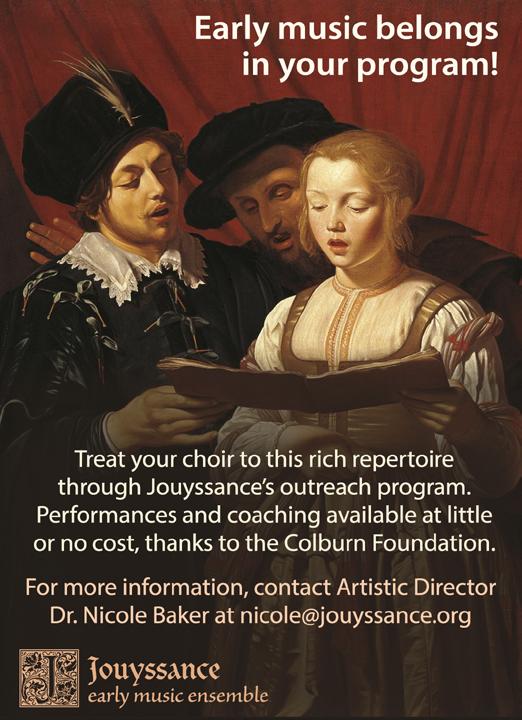








The Formosa Singers from Taiwan are one of the world’s renowned choral groups. They commission creative and beautiful works by local composers. Pavane Publishing is very proud to launch a new choral series with them under the editorial excellence of Cristian Grases. Each edition is published in Taiwanese and IPA and English translations.

To see our complete choral catalog, visit www.PavanePublishing.com.
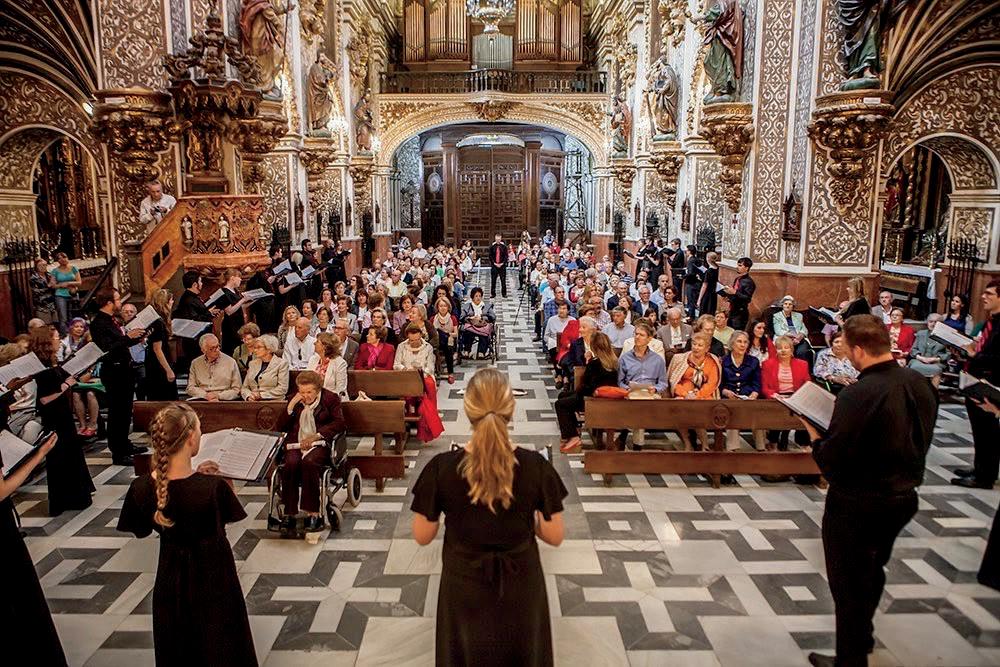


Organizational Application Deadline: December 23 (Every Year)
(5 th-12 th School Grade SATB)
Individual Audition Video Submission Deadline: March 15 (Every Year)

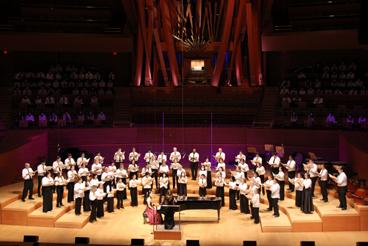
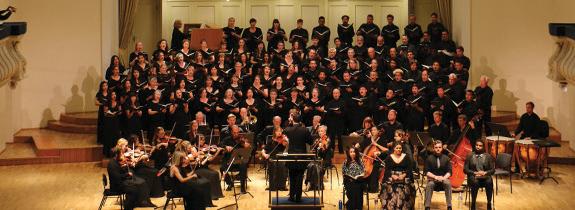
• Individualized approach to the planning of each domestic or international concert tour. Programs are fully customized to fulfill the dreams and visions of each choir.
• One-on-one consulting by PI/PA’s Artistic Director of Choirs about concert venue and repertoire as desired.
• Creative tour planning using the PI/PA team’s combined 100+ years of travel industry experience. PI/PA has produced concert tours throughout Africa, Asia, Australia/Oceania, Europe, North America, and South America.
• Best-in-class tour managers accompanying the ensemble from arrival until departure. International tour managers are fluent in English and the local language.
• Concert production in venues of your choice –from churches to concert halls.
• Planning of collaborative concerts with local ensembles.
• Clinics with composers and conductors in most countries.
• Access to PI/PA leadership team throughout the tour planning, contracting, and tour execution process.


• Managing all logistical tasks to facilitate a seamless operational process from contract signing to the execution of the program.
• Managing all interaction with institutional procurement and legal departments during contract negotiations.
• State-of-the art online tour signup and payment management software including access for ensemble leadership to monitor the most up-to-date data.
• Management of the payment process –either group payments, payments from each individual singer, or a combination of both.
• Concert venue booking, marketing and audience development support for formal concerts; On-spot concert logistics staff for most formal performances.
• Group airfare bookings utilizing PI/PA’s letters of credit with most airlines to reduce and mostly eliminate mandatory deposits.
• Contracting of hotels, restaurants, transportation (coach and rail), attractions, local guides, and other special services.
• Support staff in most countries to manage unexpected and/or last-minute issues.
• $5 million professional liability insurance.


For more information, contact Gene Peterson at gpeterson@perform-international.com | www.perform-international.com | www.perform-america.com
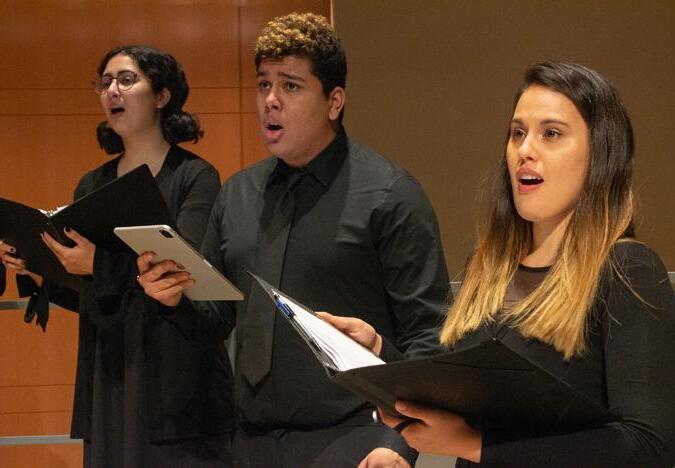
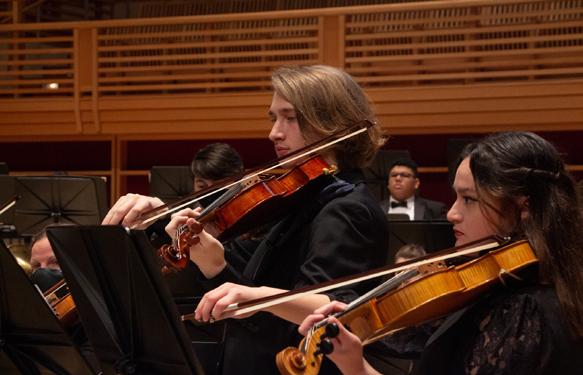

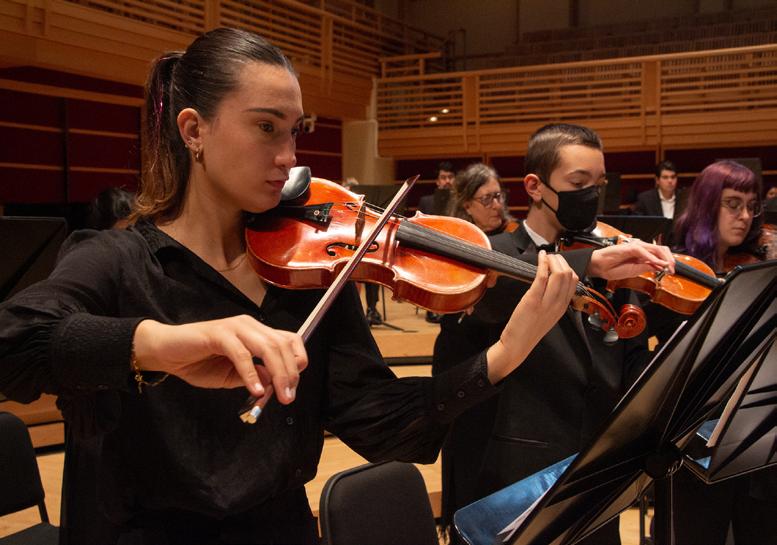
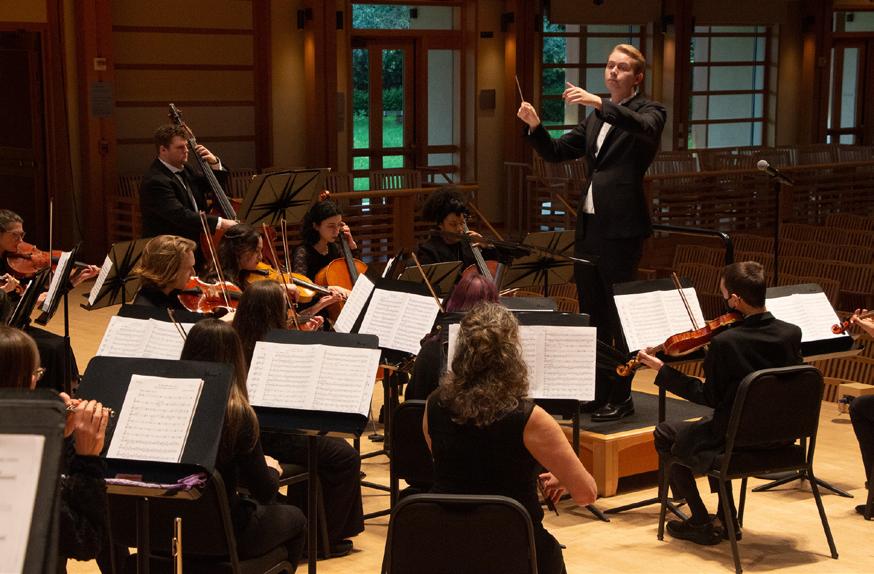

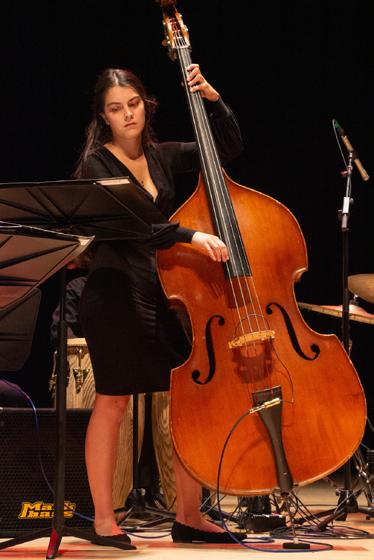
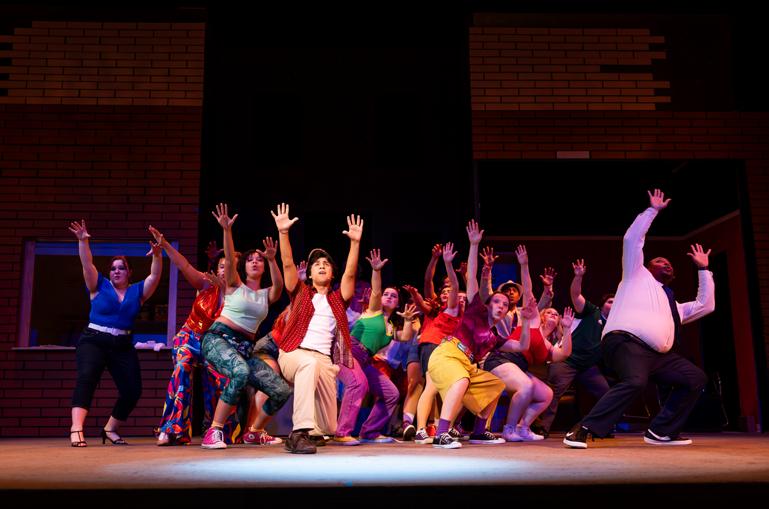

1 Accompanists available Everyone who auditions is considered for a Music Scholarship music.sonoma.edu
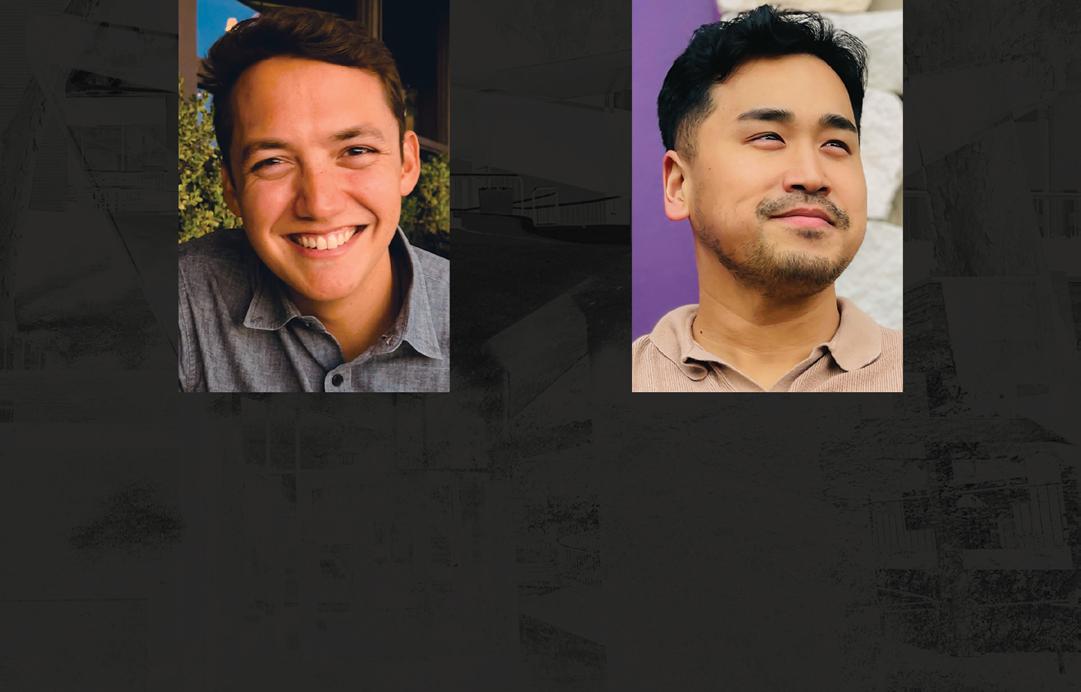
CSULB Choral Studies congratulates two extraordinary alumni from our graduate Choral Conducting program. Bravo to Dr. Matthew Lyon Hazzard (MM 2019) on his appointment as Director of Choral Activities and Vocal Studies at Mt. San Antonio College and to Darita Seth (MM 2023) on his appointment as Director of Choral and Vocal Studies at Santa Rosa Community College. The Beach Family is proud of you both.
Are you ready for the next step in your career? For more information about CSULB’s graduate program in choral conducting, please visit csulb.edu/music or contact Dr. Jonathan Talberg at jonathan.talberg@csulb.edu
President
Arlie Langager (858) 774-0412 alangager@miracosta edu
Past President
Chris Peterson (562) 453-9851 cpeterson@fullerton.edu
President-Elect
Kristina Nakagawa kristina m nakagawa@ gmail com
Children’s and Community
Youth
Kent Jue kjue@ragazzi org
Community Choirs
Yewon Lee yewonlee98@gmail.com
Choral Composition
Zanaida Robles znrobles@gmail com
High School Vacant
Junior High/Middle School Vacant
Music in Worship
Steve Kim kieunstevekim@gmail.com
SSAA Choirs
Iris Levine irislevine@mac com
TTBB Choirs
Albee Mabeza amabeza@prioryca.org
Two-Year College Vacant
Vocal Jazz
Andreas Preponis apreponis@ laspositascollege.edu
Cantate magazine editor
Eliza Rubenstein cantate.editor@gmail.com
Website
Kelly Walker and John Nguyen
Social media
Ryan Yoder
E-mail coordinator
Emily Moore emoore@musd.org
Secretary/Executive Administrator
Kathleen Preston 921 N. Harbor Blvd., #412 La Habra, CA 90631-3103 exec admin@calcda.org
Treasurer Genevieve Tep gtep@seq.org
Development
Daniel Afonso dafonso@csustan edu
Membership
Molly Peters mepeters79@gmail com
Director at Large William Zinn wzinn6023@gmail com
DEIAB
Kellori Dower drkellori@gmail com
K-12 Student Programs
Patrick Burzlaff patrick burzlaff @kernhigh org
Community and Worship
Buddy James buddy.james@ csueastbay.edu
Education and Student Outreach
Cari Earnhart cearnhart@csufresno.edu
Summer Conference at ECCO
Jeffe Huls jeffe.huls@gmail.com
CCDA at CASMEC
Jennifer Heder jenniferheder@gmail.com
CLA/CASMEC
Cari Earnhart choralleadershipacademy @gmail.com
All-State Honor Choirs
Jenni Gaderlund Susanna Peeples honorchoir.allstate.ca @gmail.com
Central Region honor choir Katie Carbajal (2025) Marc McGhee (2024) honorchoir.central.ca @gmail com
Coastal Region honor choir Kate Huizinga (2025) Kira Dixon (2024) coastalhonorchoirchair

Chamber Choir, Treble Choir, University Chorus Opera Workshop, Fully-Staged Operas
Undergraduate: BM Music Education, BM Vocal Performance
Graduate: MM Choral Conducting, MM Vocal Performance, Graduate Artist Diploma
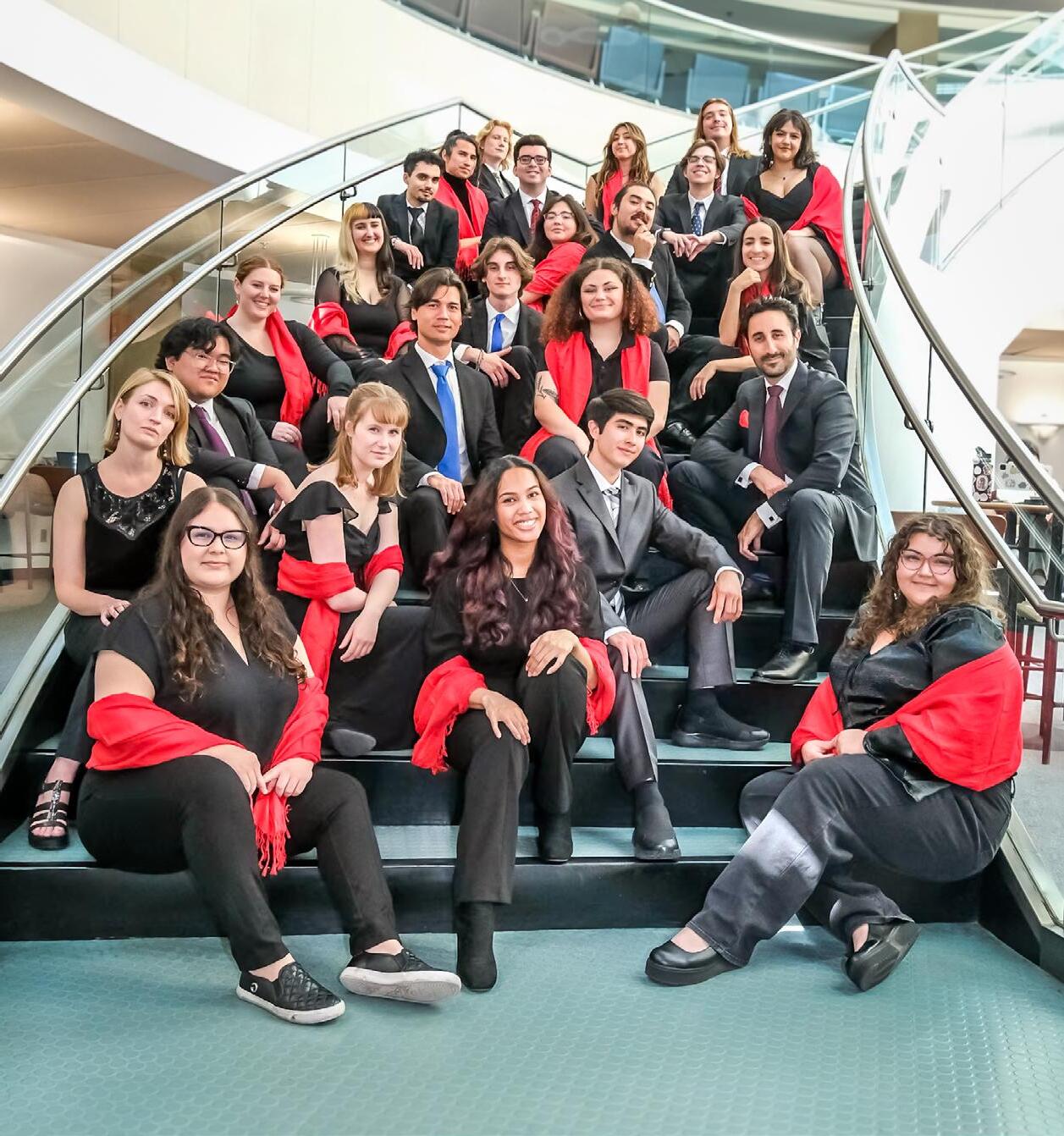
Dr Arian Khaefi, Director of Choral Studies akhaefi@sdsu.edu
Dr Ramon Cardenas, Choral Music Education racardenas@sdsu.edu


